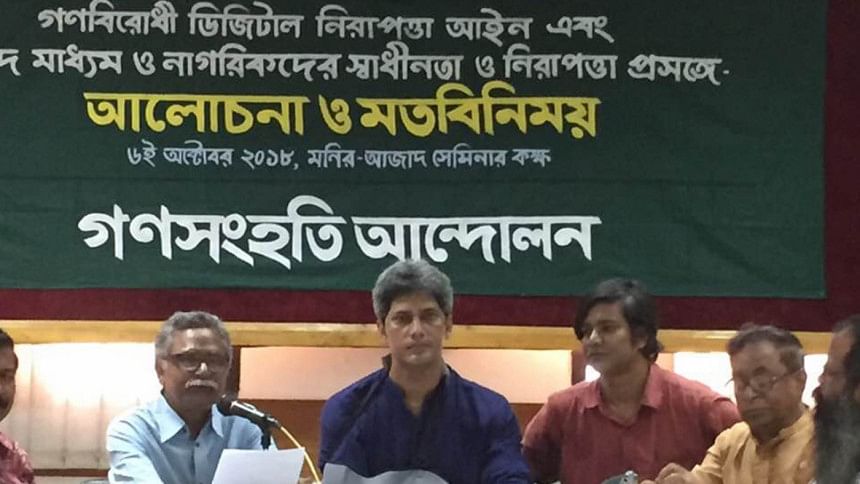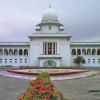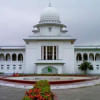An attempt to justify illegitimate activities: Speakers

The government formulated Digital Security Bill in an attempt to “justify its illegitimate activities”, speakers said at a meeting yesterday.
The bill is aimed at shrinking the scope for freedom of speech, they said.
Ganasamhati Andolon organised the views-exchange meeting on “Anti-people Digital Security Law: Freedom of Press and Citizens, and Security Contexts” at Moni Singh-Farhad Memorial Trust Bhaban in the capital's Paltan.
The speakers, who included left-leaning politicians and like-minded concerned citizens, said cyber threats could be tackled by amending the country's existing laws.
On Thursday, the Digital Security Bill 2018 was sent to the office of President Abdul Hamid for his assent, said sources at the Parliament Secretariat and the Bangabhaban.
Amid widespread criticism against some of its provisions that have been termed a threat to freedom of speech and expression and the freedom of the press, Speaker Shirin Sharmin Chaudhury on Tuesday signed the bill passed by parliament on September 19.
With the president's assent, the bill will become a law.
Sampadak Parishad (Editors' Council), a platform of editors of the country's national dailies, and journalists and other media persons have expressed serious concerns over sections 8, 21, 25, 28, 29, 31, 32, and 43 of the bill, saying those sections pose serious threats to freedom of expression and media operation.
At yesterday's meeting, Prof Anu Muhammad, member secretary of the National Committee to Protect Oil, Gas, Mineral Resources, Power and Ports, said the Editors' Council have done a “timely and commendable” job by raising its concerns and explaining the loopholes and problems of the bill before the government.
“The government has an ill intention and that's why it formulated the law [the Digital Security Bill 2018],” he said.
Law enforcers “randomly” picked up people who were later sent to jail without any conviction. Journalists were also beaten up, Anu Muhammad added.
Attempt to bring such activities under a legal framework reflects the government's intention, added Anu, an Economics professor at Jahangirnagar University.
Zonayed Saki, chief coordinator of the central executive committee of Ganasamhati Andolon, said very few of the country's laws were as repressive as the Digital Security Bill.
Government employees have been given indemnity through the law, he said. “Thinking about it makes me shudder.”
Saiful Haque, general secretary of Revolutionary Workers' Party of Bangladesh and coordinator of the Left Democratic Alliance, said it would not be wrong if the bill was termed Government Protection Act.
It is totally unimaginable that such a law could exist in present Bangladesh, he said, adding that LDA would organise programmes against the formation of the controversial bill.

 For all latest news, follow The Daily Star's Google News channel.
For all latest news, follow The Daily Star's Google News channel. 








Comments